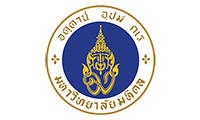Background
Intensification of crop and livestock production can improve food, nutrition, and income security; however, intensification can also lead to increased agricultural-related health risks, environmental degradation, and biodiversity loss. This is especially true in Southeast Asia, a region facing rapid economic growth and population dynamics. To address this complex challenge, a better understanding of the interactions between agricultural practices, human health, and ecosystems are required. The Field Building Leadership Initiative (2011-2016) was created to address this challenge through research, capacity building, knowledge translation and networking. Developed jointly by research centers in China, Indonesia, Thailand and Vietnam, this initiative was designed to:
- strengthen the Ecohealth field in Southeast Asia, and build a mature field of research training, and practice;
- train a new generation of researchers and practitioners in the region;
- produce useful and relevant research for policy and decision making; and
- create links between research and policy circles in Southeast Asia and China.
In China, a new generation of pesticides that claim to be highly effective, and low in toxicity and residues, are actively promoted by China’s agricultural extension department. These pesticides are widely used by local farmers yet the long-term risks on human health and ecosystems are not well understood. A transdisciplinary research group of the Kunming Medical University and their partners are focusing on addressing the impact of pesticide use in Yuanmou County, Yunnan Province, China.
To capture FBLI China’s process of change toward Ecohealth field building outcomes, challenges and lessons learned, an evaluation activity to identify outcomes was conducted by the program’s Coordinating Unit at the regional level and the FBLI China team in October 2015. This case study provides results of the activity.
For further information, please read it here.https://cgspace.cgiar.org/handle/10568/76217












